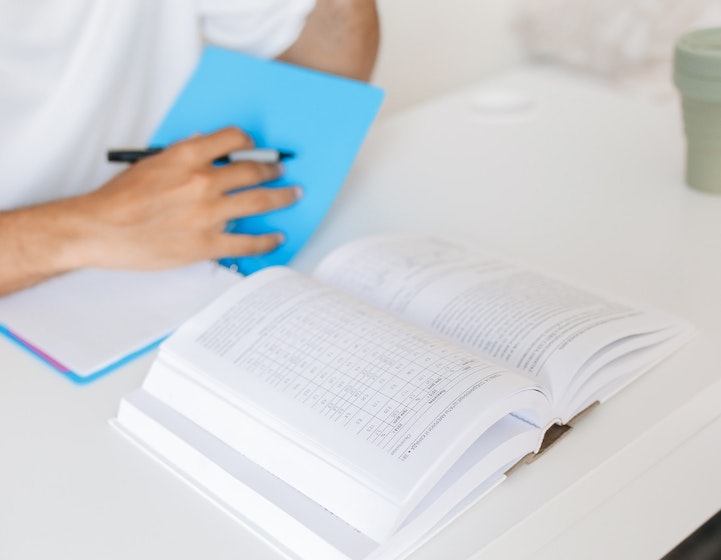
 Post Category - ParentingParenting - Post Category - Older KidsOlder Kids
Post Category - ParentingParenting - Post Category - Older KidsOlder KidsResilience in the face of challenges – this has been in the spotlight after the usual post-PSLE maths paper furore. But how do we encourage our children to not fall apart at the first hurdles? Is letting them make mistakes but knowing when to have their backs, the key?
Ms Ginny-Ann Oh, Director of PR and digital marketing agency APRW, is a mother of two. Here she shares how she feels children should start learning how to be resilient in the face of minor failures and setbacks – it’s one of the most important life skills they can learn.
It was with shock and horror when I read of tears, vomitus and flipped tables following the trial of figuring out Helen and Ivan’s coin collection. In PR and marketing – especially in PR, where rejections and ‘failures’ take place on a daily basis – the ability to be tenacious in spite of circumstances can make or break a professional. Often in a very short time.
So how can we teach our children resilience in the face of setbacks and challenges to see them through life? Dealing with adversity and coping with challenges is certainly a lesson that we need to start young.
Teaching my children resilience meant allowing them to make mistakes
In the years before my two children entered primary school, we encouraged them to develop life-skills so that they could adapt. We got them used to carrying trays of boxed food from fast food counters, then progressed to hot bowls in food courts and hawker centres. From paying with the exact amount to learning to deal with change. Toppled drinks and spilt soups were par for the course, but we just had to learn to pick things up, clean up and move on.
In primary school, I did not check their homework before they had to hand it in. For one, it was to ensure the teacher sees their level of understanding, and not MY knowledge of the topic. I also wanted them to know it is ok to make a mistake and to learn from it, taking criticism and feedback along the way.
I also told them that I would not be rushing forgotten homework and items to school to bail them out. To me, this was critical as it ensured that they take responsibility for themselves, and also their actions. They had to take these lessons to heart and be resilient in face of the consequences.
Pressures of PSLE: do your best, then move on
Despite all these efforts, I was still a wreck when my first PSLE season came around in 2017. I was high-strung the whole year, with frantic calls from the office to my son demanding that he revised his work properly. Having promised them minimum levels of tuition (we only had external help with Chinese as I had no idea how to teach the subject), the load was on me to ensure he knew everything. The stress carried through till it was time for the exams.
That’s when the conversation turned to however the paper was set, we have done our best to prep. Whatever comes up, we just have to chin up, and go into the next paper. We had already spoken of the annual tough question fallout. These, I would tell him, are the questions to be expected as exams are to stretch abilities and let us know how far we can perform for a subject. We did our best to prepare for these in his areas of strength, while practically focused on doing our best in others.
I don’t quite recall what the controversial Maths question was that year. I remember that he came back, we talked about it, and I braced myself for something less than what we thought he could achieve in his strongest subject. Most importantly, I told him he had done his best, and we should just move on instead of worrying about it.
Calm on the outside, guilt-ridden on the inside
To be honest, maintaining this calm demeanour and perspective towards positivity was not easy. Couple that with the typical working mother’s guilt of ‘Should I have spent more time on my child instead of work?’ – the answer is no, I would have driven both of us crazy – and you would understand the internal turmoil I was in.
He didn’t do badly, and in fact, managed to comfortably get into the secondary school he liked. He’s happy there, excelled in his CCA, while I continued to worry over the academic results.
Now, we are in the O-Levels season. And I am finally seeing the light at the end of the tunnel – the resilience that I know will be instrumental to him in the big, bad world.
When he wasn’t pleased with his results for Chinese – a paper he took earlier in the year – he decided he would re-take the paper. I was pleased with how he planned to better gear up for it.
When he received his prelim results, I saw a huge turnaround in some problematic subjects, with a dip in strong areas. While there were some of the typical recriminations of strict marking and difficult papers, he also faced up to what and where he could do better.

The exams that make or break children
We officially kicked off his ‘O’ Levels season in October with the first written paper over an exam period that ends in November. So far, he has come home happy with some, shell-shocked at others. What do you say to a boy who knows that these are exams what will make or break his plans in his academic journey?
If a child has given their best, us parents should have their back
“It’s ok,” is something he needs to hear. And know I mean it. Turn his thoughts forward, not dwell on the past – is there another component we can work towards to pull the score back up? No? Then, let’s see what we can do for the next subject. Whatever it is, the child must know he has given his best, and you will have his back.
I am nowhere near perfect. I still yell at him to keep up the revision. But I know one thing for sure – he is turning out to be a resilient one. I can see him working things out when he talks to me.
And I guess that’s the best I can do for my children, really. Let them understand that the world is not always fair, and life is not always smooth sailing. But all they need to do to survive, even thrive, is to be able to pick themselves up, dust themselves off and move on with the lessons learnt.
Do that, and life will be alright.






 View All
View All




 View All
View All









 View All
View All




